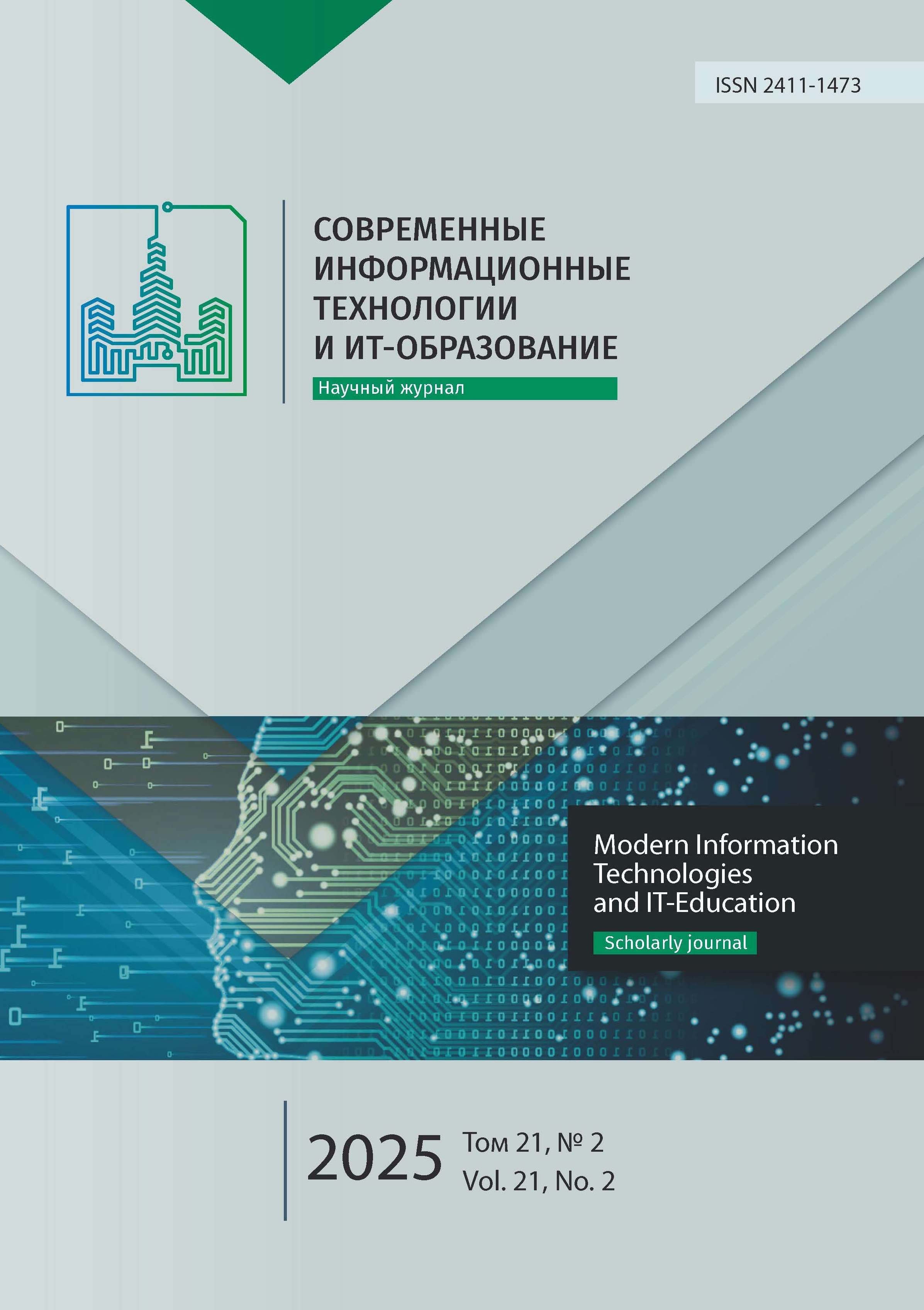Модель обучающей информационной системы подготовки кадров для преподавания в учреждениях среднего профессионального образования
Аннотация
Одной из задач современной системы среднего профессионального образования является подготовка квалифицированных специалистов, соответствующая современному уровню развития техники, готовых к непрерывному образованию и самообразованию. Высокий уровень востребованности специалистов среднего звена у работодателей обусловливает потребность в педагогических кадрах, реализующих программы среднего профессионального образования. Профессионально-педагогическое образование, задачей которого является подготовка таких специалистов, не в полной мере решает эту проблему. Дефицит преподавателей среднего специального образования можно восполнить в рамках организации программ дополнительного образования для бакалавров соответствующего профиля. Будущих педагогов необходимо познакомить с теоретическими и практическими особенностями работы в сфере среднего профессионального образования, сущностью проекта «Профессионалитет» и стандартами WorldSkills. Одной из наиболее удобных форм организации такой работы является создание обучающей системы, использующей технологии искусственного интеллекта.
Целью работы являлось проектирование системы обучения и контроля, направленной на подготовку студентов к преподаванию в системе среднего профессионального образования. Для достижения цели были поставлены следующие задачи: создание формальной модели обучающей системы; выбор средств для реализации и оптимизации полученной модели.
При разработке системы подготовки студентов бакалавриата к преподаванию в учреждениях среднего профессионального образования использовалась модель готовности к преподаванию, состоящая из следующих компонентов: мотивационно-ориентационный, оценочно-рефлексивный; операционно-действенный.
Каждый из компонентов представлен в нескольких разделах обучающей системы. Мотивационно-ориентационный компонент представлен в материалах курса, отражающих сведения о современной системе среднего профессионального образования, стандартах WorldSkills, демонстрационных экзаменах по стандартам WorldSkills, федеральном проекте «Профессионалитет», о концепции Всероссийского чемпионатного движения по профессиональному мастерству. Оценочно-рефлексивный реализован в тестовой части курса, направленной диагностику и самодиагностику профессиональных качеств студентов. Обучающая часть курса реализует операционально-действенный компонент, знакомящий студентов с особенностями педагогической работы в системе среднего профессионального образования.

Это произведение доступно по лицензии Creative Commons «Attribution» («Атрибуция») 4.0 Всемирная.
Редакционная политика журнала основывается на традиционных этических принципах российской научной периодики и строится с учетом этических норм работы редакторов и издателей, закрепленных в Кодексе поведения и руководящих принципах наилучшей практики для редактора журнала (Code of Conduct and Best Practice Guidelines for Journal Editors) и Кодексе поведения для издателя журнала (Code of Conduct for Journal Publishers), разработанных Комитетом по публикационной этике - Committee on Publication Ethics (COPE). В процессе издательской деятельности редколлегия журнала руководствуется международными правилами охраны авторского права, нормами действующего законодательства РФ, международными издательскими стандартами и обязательной ссылке на первоисточник.
Журнал позволяет авторам сохранять авторское право без ограничений. Журнал позволяет авторам сохранить права на публикацию без ограничений.
Издательская политика в области авторского права и архивирования определяются «зеленым цветом» в базе данных SHERPA/RoMEO.
Все статьи распространяются на условиях лицензии Creative Commons «Attribution» («Атрибуция») 4.0 Всемирная, которая позволяет другим использовать, распространять, дополнять эту работу с обязательной ссылкой на оригинальную работу и публикацию в этом журналe.













